I grew up in a small town in New England. As a boy, and up until graduation from High School, I spent a major amount of my time working on my best friend’s family dairy farm. At that time I had no plans to become a performer at all, let alone a Clown. I was going to be a doctor. I was sure of it and that was the image that I held of myself. Most of my perspective on the world and of myself were framed by that image. In the meantime I was, by circumstance, in the company of what I now consider to be some extraordinary individuals. The boys of Fieldstone Farm. My best friend and his two older brothers.
Whether we were young boys or not, we were expected to manage a full-grown man’s workload on the farm. I learned how to work hard while there. And, in the company of the boys of Fieldstone Farm, I also learned how to play hard. These boys were very intelligent people and it was because of that, I think, that they were constantly inventing games to play while we were working to keep themselves stimulated intellectually. The main premise of most of these games revolved around self images and the behaviors that went with them.
We would create characters and perform them for each other to make comment on ourselves, our situation, on other people we knew, and of the world around us. We were constantly in observation of human behavior and the way that behavior related to the images that people held of themselves. No one was exempt from being "played" with. No subject was taboo. We were equal opportunity employers for any and all things human and for any way we may wish to comment on them.
There were some very strange "characters" who came to work as farm hands over the years who inadvertently became case studies for our self entertaining games. We would name the behaviors and perform them in extreme dimensions. Many of them were named in a sarcastic way like, Mr. Friendly, for someone who is not, or after aspects of behavior we wanted to comment on like, Lover boy or Mr. Macho. And many were named after the people who inspired them. So, behaviors could be described as, doing a "Geoffrey" or doing a "Paul".
An interesting thing about this "entertainment" was that it was actually much more than that. It was an amazing form of education as well. We were educating ourselves to be students of human behavior and we were also educating ourselves in a quality of honesty that required us to discern the difference between performing an image of ourselves or simply being our "real" self. I am using the term "real" to mean an edition of our self that is open, inclusive, and honest.
We were merciless with each other if we saw that any of us were getting caught up in a self image and being dishonest about who we really were. We were certainly allowed to play images of ourselves and had great fun doing it, but the game was not to confuse our "real" selves for the image of our self we were playing. The people we viewed as the most sad cases were the people who were playing a perfect image of themselves and did not realize they were doing so. Both those who were trapped in an illusion of inflated self significance and those trapped in an illusion of self insignificance.
These were genuinely tragic cases reminiscent of Shakespeare’s KING LEAR who had given his kingdom and kingship away and still thought himself to be king and to be treated such. He was tortured by the conflict he found himself in. He could not see the reality of his situation for the illusionary image he still held of himself as being king and deserving of the love and respect of his daughters and the service of his subjects. I now consider this time on the farm to be my primary introduction to what I now think is an important aspect of the Clown Mind.
That aspect being the ability of the Clown to take delight in playing with the dynamics of the psychological argument between the image we hold of ourselves and the present, "real", self in the moment. I like to call this Clown Consciousness. Perhaps this basic argument remains the same in both tragedy and comedy. The main difference being whether the protagonist realizes their situation or does not and presents it accordingly.
I think that the skilled Clown can walk the tightrope between Image and Reality with impunity. They consciously play with the confusion between the two for the value to be gained by becoming aware of the trap that our own images of ourselves can become if we mistake them for our "real" self. They are willing to be brutally honest with themselves and to disillusion themselves with the understanding that, by doing so, they will be able to present more responsible illusions. They then can pretend with the purpose of being a responsible and entertaining guide through the maze of image management concerns we may fall victim to.
In doing so I think they present an opportunity to perceive a more enriching reality through their playful provocation towards an increased honesty within ourselves and among one another. That said, my education on the farm compels me to remember that all I have just described is an image. An image of how a Clown Mind seems to work. I do find it fun to play with.
David MacMurray Smith - Philosophical Statement
Over the years that I have worked and taught in various mediums of the performing arts, I have been amazed at the challenges we face in communicating with each other as human beings. My curiosity has led me to explore the phenomenon from different perspectives which have included the physiology of behavior, the psychology of communication, the linguistics of structure, and various theories about the nature of memory and perception.
My impetus for this investigation is rooted in my sense that there is great need today for more personal and interpersonal transmythic avenues for present event perception and communication among ourselves. This basically means that I perceive the need for increased ways for people to more directly experience themselves and each other across boundaries of age, race, sex, and culture etc. I view each individual's interpretation of an experience as the creation of a small myth of the event, a way that we describe an event to ourselves. We each create our own interpretation of what we experience by associating what we are presently experiencing with what we already hold in our memory.
I consider this process of associative interpretation as a form of self narrative and a foundation of myth making. The sharing of myths among ourselves is a primary way that we attempt to communicate and relate our experiences among one another. Although it is a marvelous process, it is also inaccurate by nature because it will always be a subjective interpretation. It also has an inherent danger because the subjective interpretation is full of assumptions.
Our memory of an event is only a vicarious representation of the event itself. A distant relative that becomes more distant as time goes by. The more distant it becomes the more full assumptions it may be. This process is unavoidable, yet our awareness of its inherent shortcoming's might allow us to be more watchful for our assumptions and more consciously present to receive new, and perhaps more accurate information.
I believe that we have come to a time in human development where we have more awareness and knowledge than ever before in history. And yet our abilities to converse among ourselves within that awareness and knowledge is hamstringed by the lack of appreciation we have of the myth making process we use to discuss our experience of life together. I am of the opinion that our neurological structure is wired to create myths. So, it is natural that the myth making process expands from there to the trans personal, cultural, and inter-cultural dimensions.
It is especially in these extended dimensions that we begin to mistake that this process of myth making we use to discuss our experience of life together is actually the life experience itself. In this way we confuse the description of an event for the event itself. This lack of discernment is a very natural outcome of the phenomenon of how our systems of memory appear to work. Is also very dangerous for we can then easily fall victim to allowing our assumptions of what we see and experience, or what we want to see and experience, blind us from receiving new information from our present perception and inhibit our ability to see new opportunities and avoid old pitfalls.
For effective and progressive communication to take place in the fast-paced cross-cultural dynamics that exist in our society today, there is need for the emotional and psychological mobility to converse across the apparent boundaries of personal and group identity concerns and the willingness to adjust to new perceptual frameworks at a quicker and quicker pace. My interest lies firmly in developing an awareness about the challenges that are presented by the very skill we have as human beings to communicate symbolically with one another and to develop our ability to do so with increased clarity. This is a challenging process that demands discernment, diligence, patience, and determination.
As we lean our way into the 21st century I think is essential that we increase our ability to directly experience one other by lifting the veils of assumption and seeing beyond the myths we have created of ourselves. By doing so we may begin to expand the number of perspectives and possibilities for increased human understanding and communication, and also open the door for new hypotheses toward solutions regarding the challenging circumstances we face today concerning our continuation as a species on this planet.
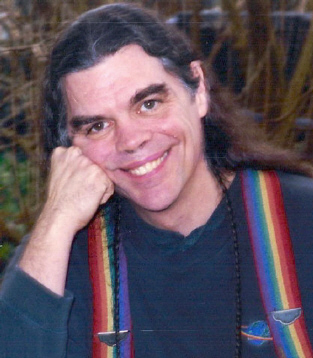
David MacMurray Smith - CV
Over the last 30 years of his professional career David has worked professionally in the areas of Theater, Ballet, Opera, Mime, and Clown, as a Creator, a Performer, a Director, a Choreographer, and an Educator. He is a Movement Specialist, Body worker, Creative and Performance Consultant, and an Experienced Counselor who has taught at several universities, was Head Instructor at the Vancouver Playhouse Theater School, and for eight years was the Movement Director for the Music Theater and Opera Programs at the Banff Center for the Arts, and has also been a guest resource artist at The People's Light & Theatre Company in Philadelphia, Pennsylvania since 1987.
David is now an independent educator who founded Fantastic Space Enterprises studio, in 1995 where the focus of the work is on self liberation and self realization through creative expression. His special-interest is in how memory moves and patterns itself in our bodies and in how this affects our perceptions, behavior, and communication. As a movement specialist David has drawn on his broad range of experience and sources to develop his own body centered, humanist approach to personal and professional development. His expertise lies in his ability to facilitate learning environments that promote principle centered self-education and provide strong foundations for continued personal and professional growth.
http://www.fantasticspace.com/
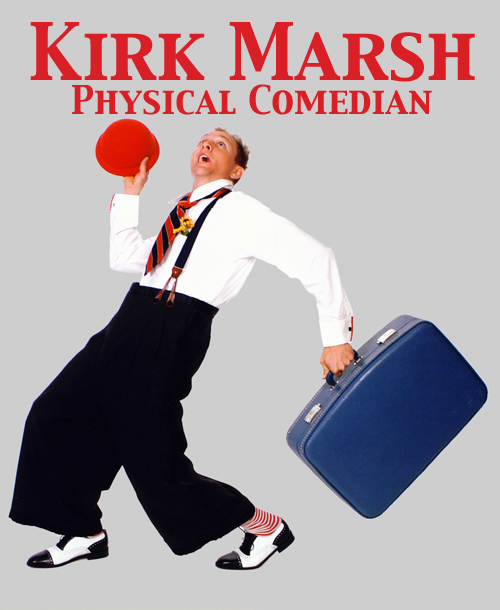
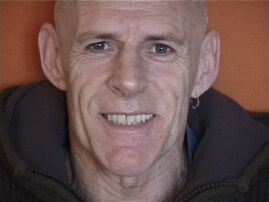
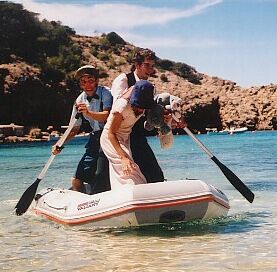

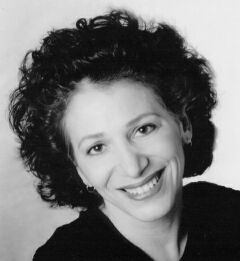

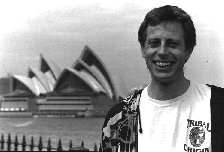

0 Comments:
Post a Comment
<< Home